This website uses cookies so that we can provide you with the best user experience possible. Cookie information is stored in your browser and performs functions such as recognising you when you return to our website and helping our team to understand which sections of the website you find most interesting and useful.
England polo captain Hazel Jackson: ‘This is the most important season of my life’
By Shivani Dubey | 12 June 2025 | Sport
Tempus meets women’s world no. 1 and England polo captain Hazel Jackson to talk making history and paving the way for other women’s polo hopefuls
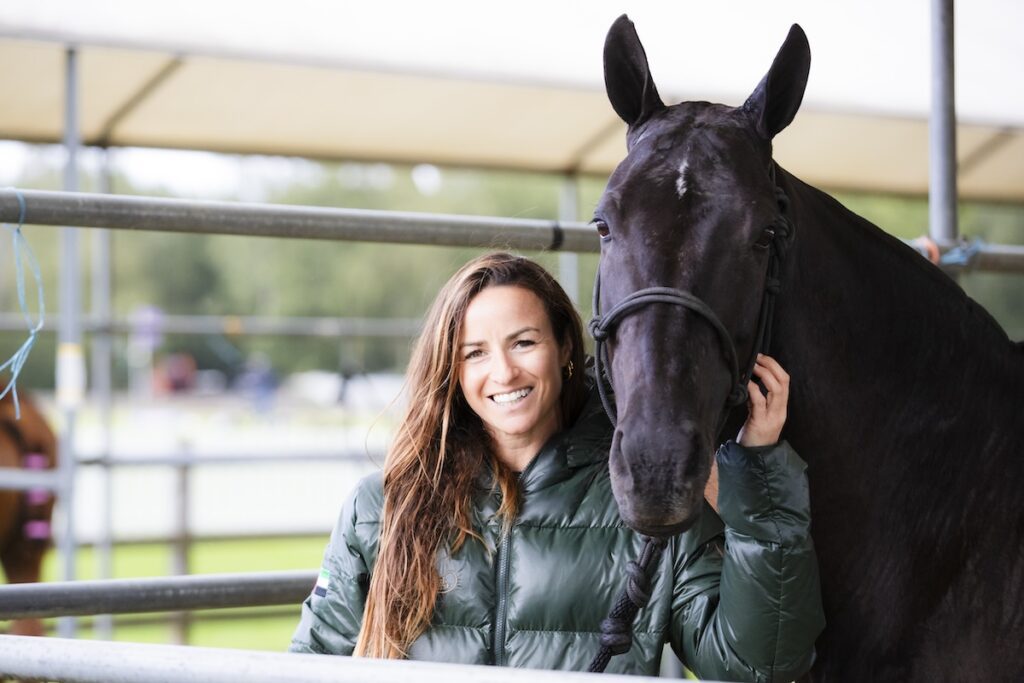 Hazel Jackson is one of the most exciting figures in polo. She is the women’s world no. 1 ranking player in the sport and is the captain of the England women’s polo team this season. She has dedicated her entire career to breaking the glass ceiling and achieving feats very few players have – all the while hoping to inspire the next generation of female polo players in the process.
Hazel Jackson is one of the most exciting figures in polo. She is the women’s world no. 1 ranking player in the sport and is the captain of the England women’s polo team this season. She has dedicated her entire career to breaking the glass ceiling and achieving feats very few players have – all the while hoping to inspire the next generation of female polo players in the process.
In fact, with a 10-goal handicap (a ranking reserved for the most skilled players in the world), Hazel will be the only British professional woman competing in professional High-Goal polo this year. A competition for the highest standard players in the world, her inclusion in this season’s High-Goal is a feat achieved by very few women in the history of the sport.
As Hazel Jackson prepares to take the upcoming polo season head-on, Tempus chats with the trailblazer to discuss her goals for this season, how the perspective towards polo has changed over the years, and why this is the ‘most important season of her life’. 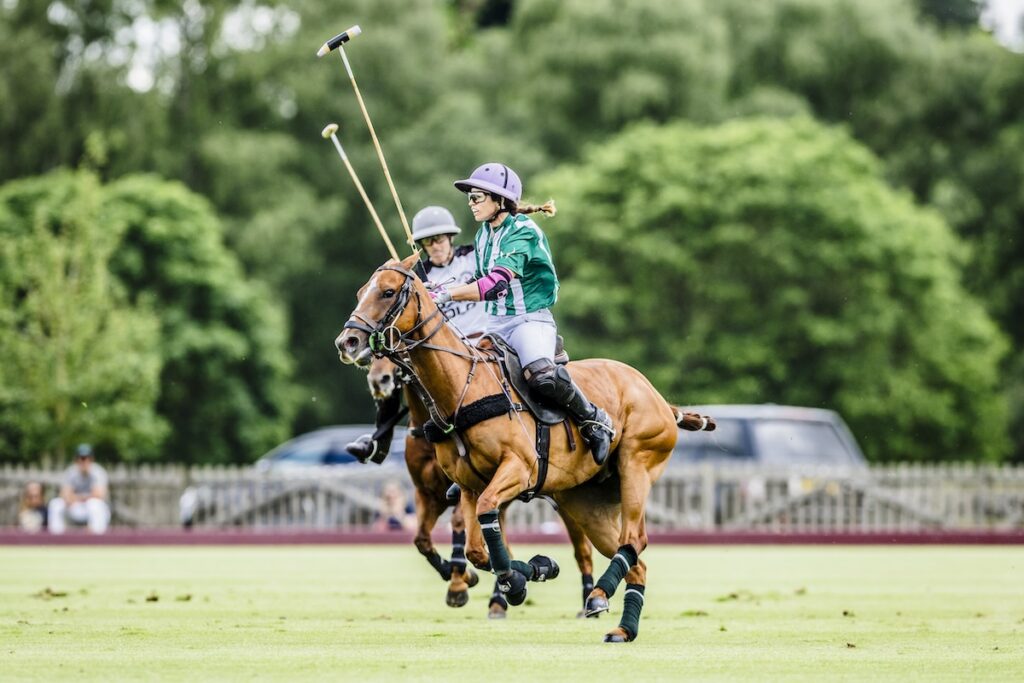 How does it feel for the England Women’s Team to be commonly regarded as the best in the world?
How does it feel for the England Women’s Team to be commonly regarded as the best in the world?
I’m very excited to become England Women’s Captain this year. It’s a lifetime dream to represent your country. It’s not just about the team; I really hope that the success of the England women’s team can inspire other girls and younger girls to realise that they can, with the focus, talent, organisation, and hard work behind them, make a successful career in polo and represent their country. There have been so many instrumental people in women’s polo; Nina Clarkin, who retired as England captain this year, has done so much for the women’s game and we’re in a great position to keep developing. There’s some pressure, but in a good way, and I’m just hoping to do the best job I can leading the squad.
When did you know you wanted to play polo professionally?
My family always had horses at home. We live in the New Forest, so we always went hacking, and my parents used to go hunting. My mum raced point-to-point. My brother, sister and I all tried Pony Club, tried all the disciplines, but as soon as we tried polo, we were all absolutely obsessed. My mum gifted me a pony for my 21st birthday and it went from there. Then I bought a horse off the racetrack and I made it [trained it for polo] myself. I have grinded, worked hard, groomed, driven lorries, worked with young horses and worked my arse off to get where I am today! That’s all with the help of some big organisations behind me, especially UAE Polo Team, who have really had my back for the past five or six years. 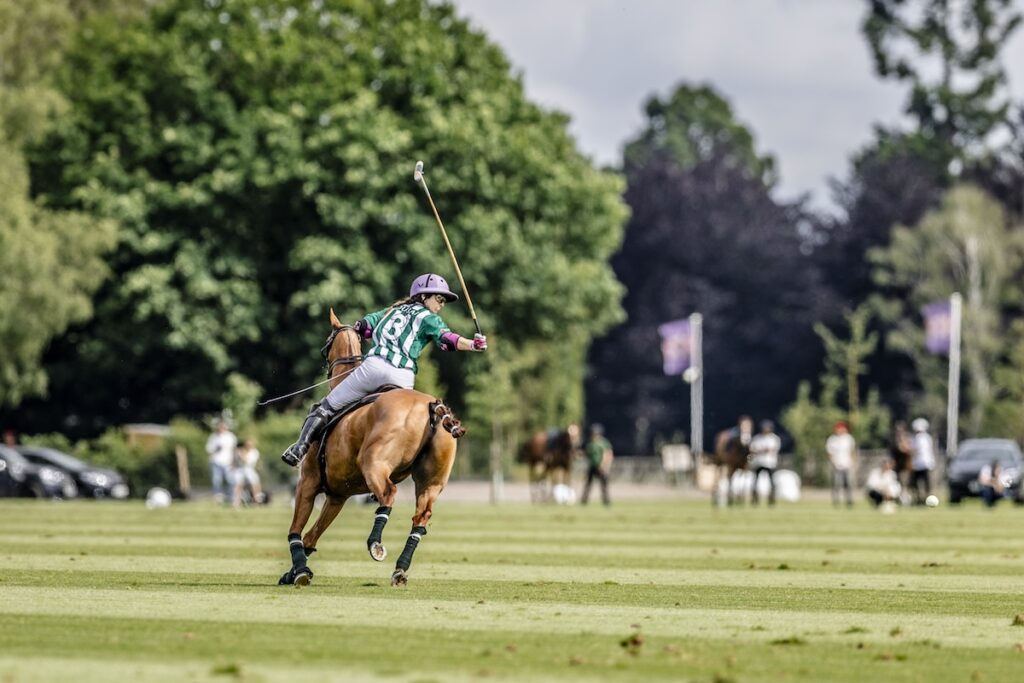 Polo is a sport that in the past has had a very niche audience, but that has now started to change. How do you think polo has broken the accessibility barrier and reached more audiences?
Polo is a sport that in the past has had a very niche audience, but that has now started to change. How do you think polo has broken the accessibility barrier and reached more audiences?
There are more and more people involved in polo all the time, and for someone like me, who didn’t come from a ‘polo family’, it’s fantastic to see people from different backgrounds coming in. Polo is such a welcoming sport full of passionate people. It’s tough to break into without that financial backing – it’s not a cheap sport – and there’s still a way to go, but I hope that the younger generation can keep getting opportunities and if I can find a way to give back, that’s what I’d love to do.
Women’s teams across many different sports have seen a surge in interest and a huge growth in audiences. Polo is no different. How do you think the perspective towards women’s sports (and polo) has changed over the years?
There’s a huge amount of support for women’s polo, but it’s still incredibly tough to break into the top levels of the mixed game. A lot of the sport depends on the sort of organisation and the horses you have. The male pro players get paid more than we do. In general, most of the men I’ve come across have been really helpful and respectful and I’ve tried to learn as much as I can from them. I think we’re at a point where they respect me for that and I’ve always asked for their help and been open to learning – that’s what I think they appreciate.
It’s a tough one. You want to be as feminine as you can, but at the end of the day, you’re in a predominantly male sport. On the field, playing mixed polo, men have quicker reactions and they’re stronger. I spend a lot of time in the gym, working on my physical strength, so that I can compete alongside men, and that’s fundamental and super important. I want them to respect me for my stronger side and for being on par with them. Hopefully, I’ll be remembered as someone that was respected by “the boys” and talented enough that I can play alongside them. 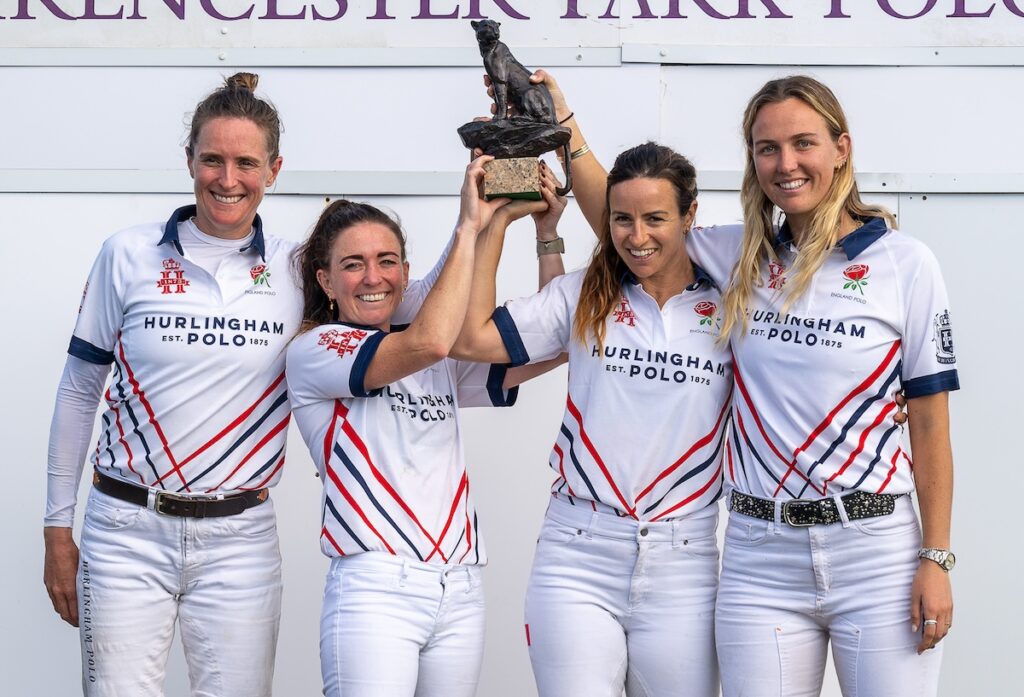 You are the only British professional woman competing in the High-Goal polo this year. How does that feel? What is the training process like?
You are the only British professional woman competing in the High-Goal polo this year. How does that feel? What is the training process like?
It is one of my proudest and most incredible experiences – playing the high goal as a professional. Last year was my first year with Black Bears, and this year I’m with Dubai, which is a hell of a team, so I feel so blessed and so lucky. I’m being super, super focused. It’s very intense on the body, so there’s a lot of recovery, and there’s a whole team behind it. I’m just taking everything in and learning as much as I can from the experience. I really hope that this does open some spots up for the other girls in the future. For me, this is the most important season of my life, and let’s hope it goes down in history. I couldn’t ask for anything more.
What are you and the England Women’s Polo team hoping to achieve this season?
The main England Women’s game of the season is the Silver Jubilee against France on 21 June. I’m not actually playing in it as my handicap is too high to make a balanced game and I will also be preparing for the Gold Cup, but I’ll be supporting the team from the sidelines and the amazing Milly Hine will be the on-field captain. We’ll be gunning for a win in this game. 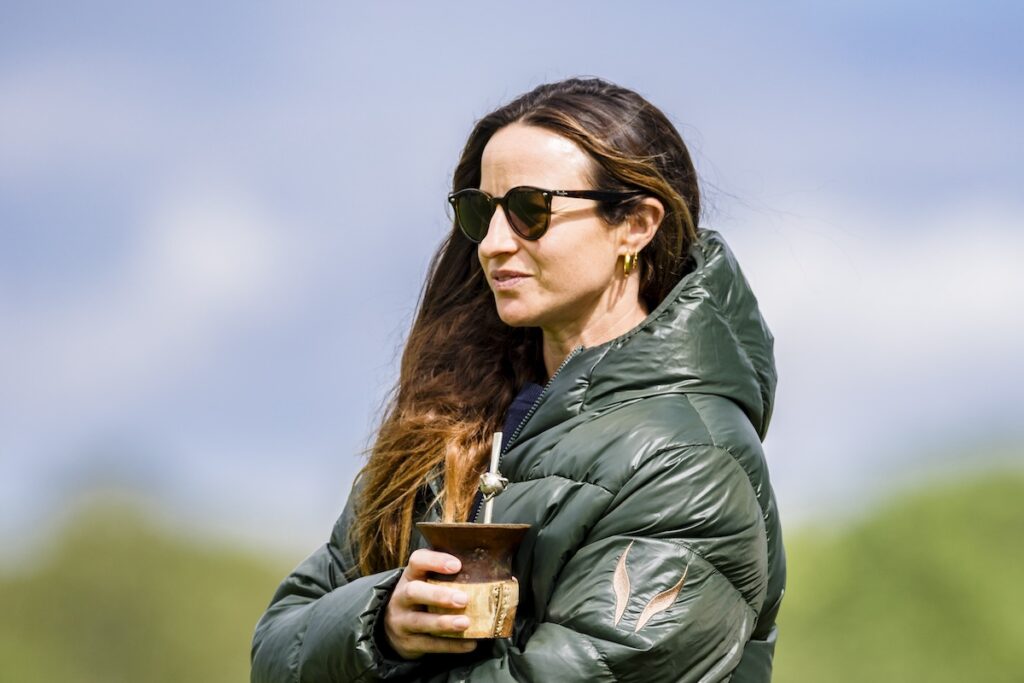 What are you most looking forward to ahead of the upcoming polo season?
What are you most looking forward to ahead of the upcoming polo season?
I’m currently playing the 22-goal, the Queen’s Cup at Guards, but the Gold Cup for me is the most important tournament in England. I played in it last year for the first time. Cowdray for me is like home—I grew up watching polo there, and my parents did as well. It’s a beautiful area, beautiful views, beautiful village. To win a cup at Cowdray would be a lifetime goal. The Gold Cup is a great day out, the final is phenomenal. To be competing in that is going to be the most exciting tournament this year. Also, I’m playing alongside [Camilo] ‘Jeta’ Castagnola, Antonio Heguy, and Rashid Albwardy. We’ve got a four-man team, but you’ve got to look out for Jeta Castagnola. He’s an absolute freak, he’s from another planet, and to study him and watch him on a horse is a work of art. People should be watching him!
What advice would you give to any woman wanting to get into the sport?
For young female players looking to break into the sport: never stop learning. That’s the most important thing. Keep asking for opportunities, show your dedication, and hopefully the opportunities will come your way. If you don’t ask, you don’t get. Keep your ears open the whole time because there are so many aspects and variables within the sport that you need to learn. Find your niche—what you’re good at. I do think that if people see your dedication and your hard work, then the opportunities will arise.
Images: The Art of Polo







